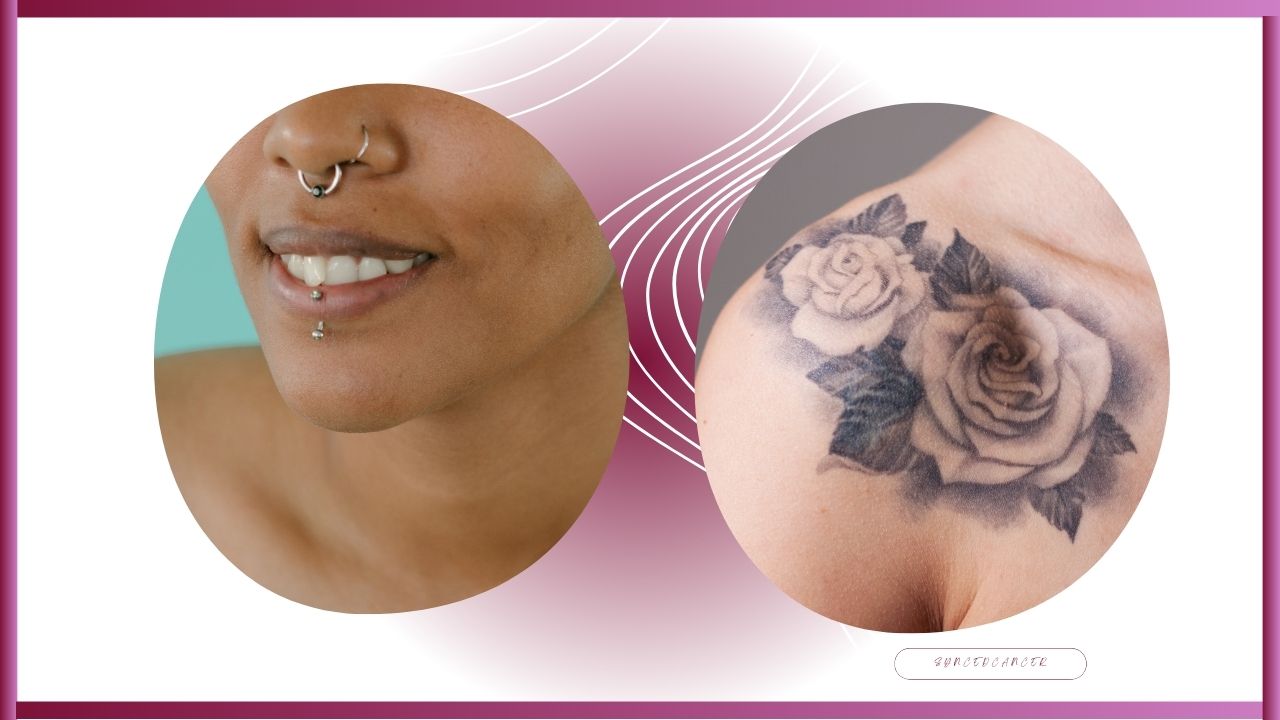For many, tattoos, piercings, and breast reconstruction are not just routine grooming or expressions of style, they are acts of autonomy. They allow us to connect with our identities, feel confident in our skin, or enjoy beauty rituals that make us feel more like ourselves. But what happens when breast cancer barges into your life, bringing along chemotherapy, radiation, surgeries, hormone therapy, and a long list of physical and emotional changes?
Suddenly, even the smallest decision about your body becomes a question mark. You may wonder, “Can I still get a tattoo?” or “Is it safe to wax my legs or pierce my ear?” These are common, valid, and deeply personal questions that many breast cancer patients and survivors ask. The good news is that the answer is often “yes” but it comes with a few “ifs” and “whens” attached. Knowing what to watch out for and when to proceed can make all the difference between a safe, empowering experience and a regrettable one.
Tattoos
For some breast cancer survivors, tattoos represent healing, celebration, or even closure. Many women use decorative tattoos to cover scars, mark milestones, or express their survival stories through body art. Others choose medical or restorative tattoos, such as 3D nipple-areola tattoos after a mastectomy. No matter the reason, timing is crucial.
It is generally not safe to get a tattoo while you’re undergoing chemotherapy or radiation. These treatments weaken your immune system, leaving your body less equipped to fight infections. Healing may take longer, and your skin may be more fragile or sensitive. Most doctors recommend waiting at least six to twelve months after treatment ends before considering a tattoo, although this varies based on your recovery.
Even after treatment, not all body areas may be ideal for tattooing. Skin that has been radiated may be more sensitive or thinner than usual, while surgical sites, especially those that have been reconstructed might not hold ink well or could take longer to heal. In areas where nerve sensation has changed, you might not feel pain or discomfort during the tattooing process, which makes it harder to know if something’s going wrong.
Finding a tattoo artist who specializes in medical tattooing or has experience working with breast cancer survivors is crucial if you’re thinking about getting a nipple tattoo. Ensuring the skin is cared for, and that healing is constantly watched is more critical than simply attaining the desired appearance. And while there’s no “cancer-safe ink,” choosing a clean, reputable studio that follows strict hygiene protocols can reduce your risk of infection.
Piercings
Piercings raise many of the same questions. Like tattoos, piercings break the skin barrier, opening the door for bacteria to enter. For someone undergoing cancer treatment or recovering from it, even a minor infection can become serious. If you’re currently in treatment or on medications that suppress the immune system such as hormone therapy or targeted therapy, it’s best to hold off on new piercings until your body is more substantial.
Healing from piercings can take longer than expected in post-treatment bodies, and the risk of complications increases if the skin is still sensitive, inflamed, or thin. Even if you feel physically ready, consulting with your oncologist before scheduling anything is worthwhile. They may also advise you to avoid piercing certain areas altogether, especially if you’ve had lymph nodes removed.
This brings us to lymphedema, one of the most common long-term complications for breast cancer survivors. It’s a condition where lymph fluid builds up in the body, causing painful swelling, usually in the arms or chest. If you’ve had lymph nodes removed or radiated, your body’s ability to drain fluid in that area may be impaired. A piercing even a small one in the affected region (like the ear, arm, or hand) can trigger or worsen lymphedema. That’s why some doctors recommend avoiding any trauma, including tattoos or piercings, on the side where lymph nodes were removed.
Breast Reconstruction
Breast reconstruction for breast cancer patients or survivors is a surgical procedure aimed at rebuilding the breast(s) after mastectomy or lumpectomy; to restore the breast’s appearance.
Breast reconstruction can have various effects on patients and survivors, and also carry potential risks and complications like Infection, Scarring, Implant rupture, Numbness or sensation changes.
For some, it might have the Emotional effects of certain experiences by Improving self-esteem and confidence, Reducing anxiety about appearance. For others, It could bring about Emotional challenges adjusting to changes, Concerns about implant durability.
Breast reconstruction is a personal choice, and understanding its effects can help individuals make informed decisions about their care. Discussing expectations and concerns with a healthcare provider can help. By knowing what to expect, patients and survivors can better navigate their journey and focus on their overall well-being.
Conclusion
Despite all these precautions, it’s important to remember that body modifications, when done safely can be incredibly healing. They can help restore your sense of control and confidence, especially in a body that may feel unfamiliar after surgery or treatment. A tattoo can be a powerful marker of survival. A piercing can be a sign of new beginnings. A simple wax appointment can make you feel like yourself again.
The key is not to rush. Listen to your body. Talk to your medical team. Ask questions. Seek out professionals tattoo artists, piercers, and estheticians who are skilled, compassionate, and willing to work with your unique needs.
Before you move forward with any body modification, it’s worth doing a personal check-in. Ask yourself: Have I finished treatment and given my body enough time to recover? Has my doctor cleared me for procedures that break the skin or traumatize sensitive areas? Do I know how my body responds to injury, pain, or infection? Have I chosen a professional who prioritizes safety and hygiene?
If the answer to all of these is yes, you’re probably in a good place to move forward. And if not? That’s okay, too. Sometimes, the best way to care for your body is to wait a little longer.
Ultimately, there is no “one size fits all” answer. Every breast cancer journey is different, and so is every survivor’s relationship with their body. What matters most is that your choices, whether you’re getting a tattoo, a piercing, or a wax are made with care, awareness, and self-respect.











What do you think?
It is nice to know your opinion. Leave a comment.